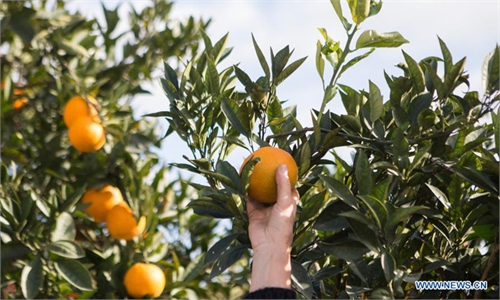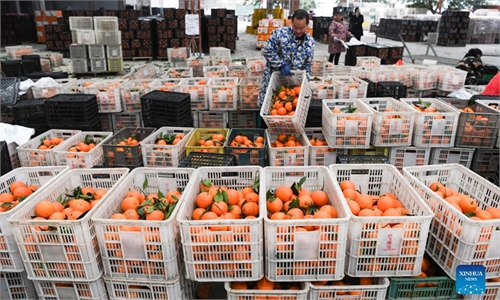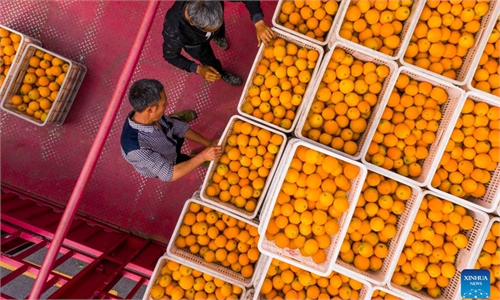Tons of fruit stranded in European Union-S.Africa battle of oranges
Millions of boxes of oranges are spoiling in containers stranded at European ports as South Africa and the European Union lock horns in a dispute over import rules, citrus growers have said.
South Africa, the world's second-largest exporter of fresh citrus after Spain, filed a complaint with the World Trade Organization (WTO) in July after the EU introduced new plant and health safety requirements that orange farmers say threaten their survival.
The measures came into force in July as ships were already at sea carrying hundreds of containers full of South African fruit to Europe, resulting in them being held up on arrival, South Africa's Citrus Growers' Association (CGA) says.
"It's a complete and utter disaster," CGA's CEO Justin Chadwick told AFP by phone.
"Food that has fantastic quality and is safe is [just] sitting there - and this at a time when people are worried about food security."
The EU rules aim at tackling the potential spread of an insect called the false codling moth, a pest native to sub-Saharan Africa that feeds on fruits including oranges and grapefruits.
The new measures require South African farmers to apply extreme cold treatment to all Europe-bound oranges and keep the fruits at temperatures of 2 C or lower for 25 days.
But the CGA says this measure is unnecessary as the country already has its own, more targeted way of preventing infestation.
In its WTO complaint, South Africa argued that the EU requirements were "not based on science," more restrictive than necessary and "discriminatory."
South African citrus growers say the requirement puts undue extra pressure on an industry already in dire straits.
"This is going to add a lot of costs... and at the moment, that is what no grower in the world can afford," said Hannes de Waal, who heads of the almost 100-year-old farm Sundays River Citrus.
Europe is the largest market for South Africa's almost $2 billion citrus industry, accounting for 37 percent of all exports, according to the CGA.
The new rules hit at the height of South Africa's orange season, during the southern hemisphere's winter, when export operations were in full swing.
South Africa, the world's second-largest exporter of fresh citrus after Spain, filed a complaint with the World Trade Organization (WTO) in July after the EU introduced new plant and health safety requirements that orange farmers say threaten their survival.
The measures came into force in July as ships were already at sea carrying hundreds of containers full of South African fruit to Europe, resulting in them being held up on arrival, South Africa's Citrus Growers' Association (CGA) says.
"It's a complete and utter disaster," CGA's CEO Justin Chadwick told AFP by phone.
"Food that has fantastic quality and is safe is [just] sitting there - and this at a time when people are worried about food security."
The EU rules aim at tackling the potential spread of an insect called the false codling moth, a pest native to sub-Saharan Africa that feeds on fruits including oranges and grapefruits.
The new measures require South African farmers to apply extreme cold treatment to all Europe-bound oranges and keep the fruits at temperatures of 2 C or lower for 25 days.
But the CGA says this measure is unnecessary as the country already has its own, more targeted way of preventing infestation.
In its WTO complaint, South Africa argued that the EU requirements were "not based on science," more restrictive than necessary and "discriminatory."
South African citrus growers say the requirement puts undue extra pressure on an industry already in dire straits.
"This is going to add a lot of costs... and at the moment, that is what no grower in the world can afford," said Hannes de Waal, who heads of the almost 100-year-old farm Sundays River Citrus.
Europe is the largest market for South Africa's almost $2 billion citrus industry, accounting for 37 percent of all exports, according to the CGA.
The new rules hit at the height of South Africa's orange season, during the southern hemisphere's winter, when export operations were in full swing.



